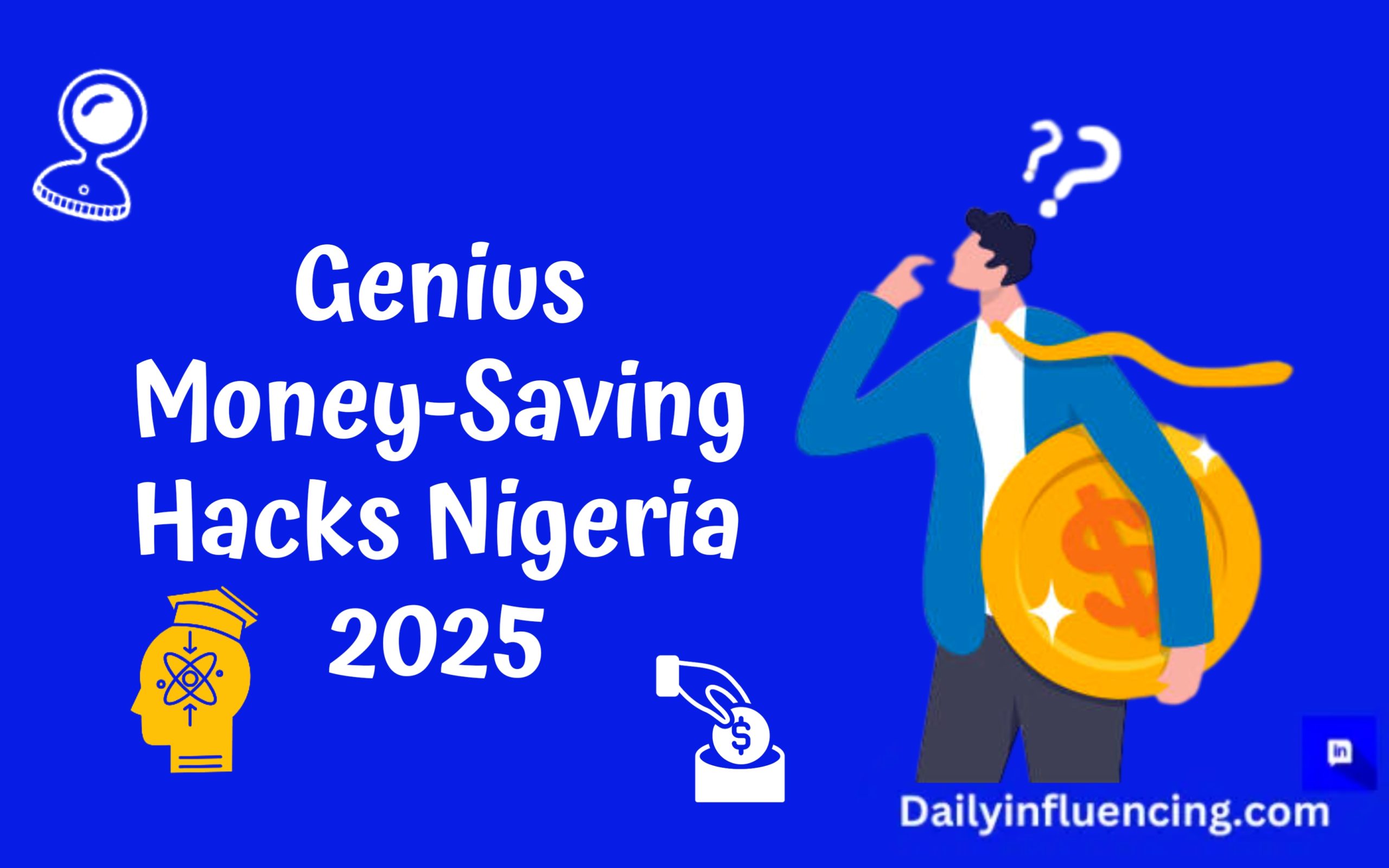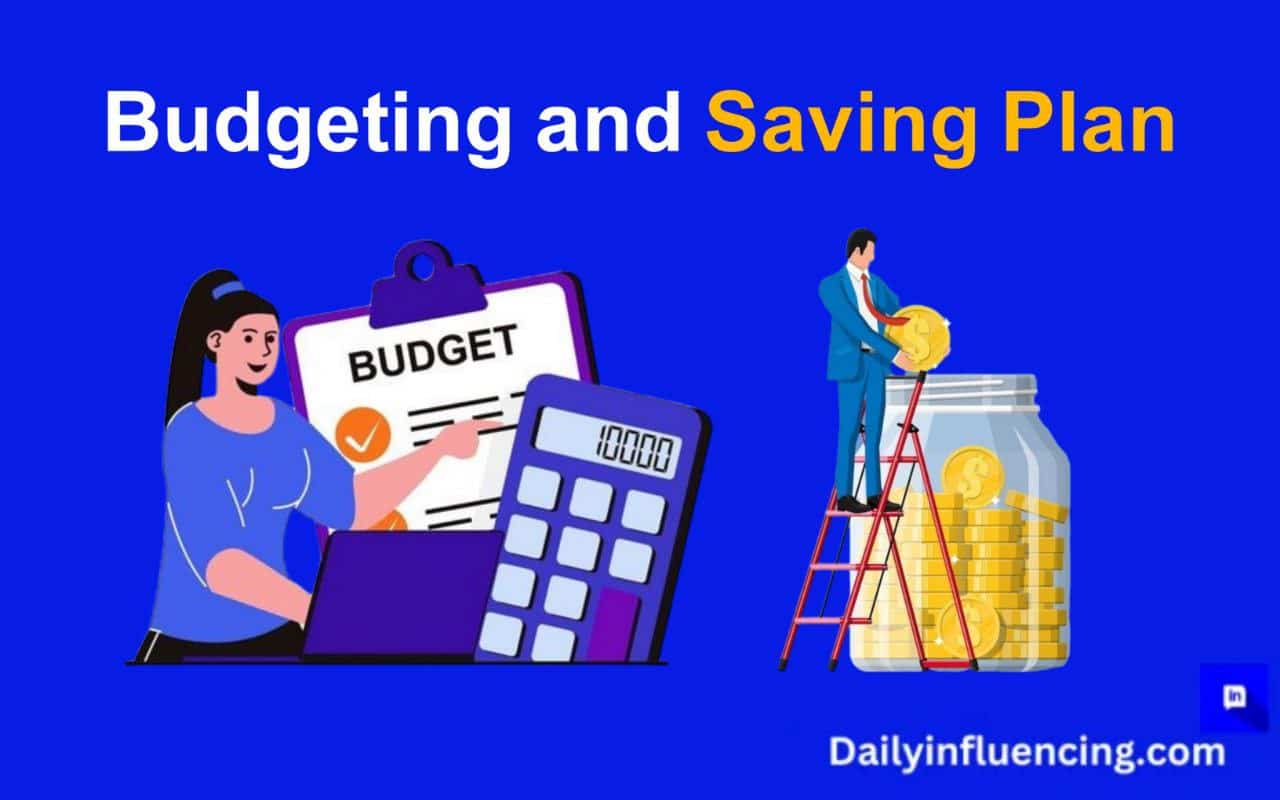
In today’s challenging Nigerian economy, adapting several ways to save money isn’t just smart—it’s essential for survival and future prosperity. the inflation rate increased to 29.90% in 2024 relative to 2023 which was 28.92%. Nigerians across all income levels are feeling the squeeze on their wallets. According to a recent study, only 27% of Nigerian adults have formal savings accounts, highlighting both the challenge and opportunity for better financial practices.
Whether you’re saving for an emergency fund, planning for retirement, or working toward a major purchase, implementing effective money-saving strategies can transform your financial reality even in these difficult economic times. This guide provides practical, Nigeria-specific approaches to help you start saving more today!
How to Save Money in Nigeria: Building a Strong Financial Foundation
The journey to financial security in Nigeria requires more than just cutting back on expenses—it demands a holistic approach to managing your finances. The economic realities in Nigeria present unique challenges, from currency fluctuations to limited banking infrastructure in some regions.
However, these obstacles can be overcome with disciplined financial habits and smart saving strategies tailored to the Nigerian context. By focusing on both reducing expenses and increasing income opportunities, you can create a sustainable path to building wealth despite economic uncertainty.
Let’s see the various ways to save money in Nigeria
1. Understanding Your Current Financial Situation
Many people are absolutely clueless about where their money is going. Like, seriously clueless. They get their salary and before the middle of the month, they’re borrowing from friends or begging parents for an advance on allowances. It’s embarrassing, to say the least.
The turning point comes when you’re aware of this simple Nigerian budgeting technique called “kolo digital” – Which basically just tracks every single naira spent! Many discover they’re spending almost 40% of their income on eating out and ordering food.
Here’s the first piece of advice if you’re trying to save money in Nigeria: you absolutely have to know where your money is going. You can download one of those expense tracking apps like PiggyVest or Wallet – they’re very helpful for financial planning in Nigeria. Many prefer Wallet because it lets users categorize expenses in a way that makes sense for Nigerian spending patterns.
Calculating Your True Monthly Income
Next, you’ll need to calculate your total monthly income to save money effectively. And this doesn’t just mean your salary – it means everything. That side hustle selling clothes on Instagram? Count it. The occasional design work you do for your cousin’s business? Yep, that too. Money management for Nigerians requires accounting for all those irregular income sources we typically have.
One mistake many keep making when trying to save money is ignoring those family responsibilities that are so common in our culture. You know what we’re talking about – sending money to relatives in the village, contributing to family events, all that stuff. These aren’t optional in Nigerian culture, so they need to be part of your budget if you’re serious about learning to save money.
After tracking spending for three months, most people identify their biggest spending leaks: excessive data usage and improper food storage leading to waste. These seemingly small issues can cost thousands of naira every month, significantly impacting your ability to save money!
Analyzing Your Income vs. Expenses
Creating a simple income-to-expense ratio was a total eye-opener for me. When I first calculated mine, it was actually negative! I was spending more than I earned, which explained why I was always broke and stressed about money.
The tricky part about cost-cutting strategies in Nigeria is dealing with our seasonal variations. During December and wedding seasons, expenses skyrocket because of all the cultural obligations. I learned to prepare for these periods by saving extra during quieter months.
One of the hardest lessons I’ve had to learn about money management was differentiating between needs and wants. In the Nigerian context, this gets super complicated because what counts as a “need” here might be considered a “want” elsewhere. For instance, having a generator isn’t really optional in most parts of Nigeria with our electricity situation, yet it’s a massive expense.
I got into trouble with microfinance loans early in my career. The interest rates were insane, but I wasn’t paying attention. Before I knew it, I was in a debt cycle that took nearly two years to escape. That experience taught me to carefully evaluate every debt obligation before taking it on.
Nigerian emergency fund building became my obsession after I lost my first job with zero savings to fall back on. Start small – even if it’s just 5% of your income going into a separate account that you pretend doesn’t exist. Trust me, future you will be incredibly grateful when life throws those unexpected curveballs your way.
2. Saving Money with a Realistic Nigerian Budget
Many people have tried pretty much every budgeting method under the sun, and to be honest – most of the popular Western approaches just don’t cut it for inflation-beating strategies to save money in Nigeria. The economy is too unpredictable, and social obligations are way too complex.
After years of trial and error (mostly error, if we’re being real), many Nigerians finally designed budget templates that work with Nigeria’s economic realities. The secret sauce is building in flexibility for those currency fluctuations and surprise expenses that seem to pop up every other week, which helps to save money more effectively.
The 50/30/20 rule that financial experts love to preach about? That often needs complete modification for Nigerian life. In practice, a 60/20/20 approach works better here – 60% for necessities (including those family responsibilities), 20% for savings, and 20% for personal wants. The traditional breakdown just doesn’t account for extended family obligations that are mandatory in our culture, making it harder to save money consistently.
When most people start their financial planning journey, they only save for about a month’s worth of expenses. Big mistake! With Nigeria’s economic volatility, you really need a bigger cushion. Financial advisors now recommend building emergency savings that cover at least 6-8 months of expenses if you truly want to save money effectively.
Many get blindsided by those village development contributions and extended family needs. These expenses can be a money drainer until you create a specific “community obligations” category in your budget. It’s been a lifesaver for family financial planning in Nigeria and ensures you can still save money while fulfilling cultural responsibilities.
Financial Planning in Nigeria: Budgeting Methods That Work
The envelope system saved my financial life, no joke. However, I had to adapt it for both cash and electronic transactions since we use a mix of both in Nigeria. I create digital “envelopes” in my banking app for different expense categories, and once an envelope is empty, that’s it – no more spending in that category until next month.
One thing that revolutionized my savings was opening multiple accounts with different Nigerian banking options. I use ALAT for my emergency fund because it’s harder to access impulsively, Kuda for daily expenses because of their free transfers, and a traditional bank for receiving my salary.
Don’t sleep on traditional contribution groups like “esusu” or “ajo” that are common in many Nigerian communities! I joined one with my colleagues three years ago, and it’s been amazing for forced savings. When it’s your turn to receive the pool of money, it feels like a windfall that you can use for big purchases without going into debt.
The tech-savvy side of me loves using Nigerian banking apps for budgeting, but there’s something powerful about those traditional saving methods, too. The social pressure of esusu groups keeps me accountable in a way that apps never could. Sometimes the old ways still work best, even in 2025!
3. Smart Financial Planning in Nigeria: Reduce Expenses Effectively
There’s nothing quite like the shock of realizing how much money you’re wasting every month. Reviewing your bank statements one morning might shock you at how much you spend on non-essential items.
Food costs could be your biggest money drain. You might be buying groceries at fancy supermarkets instead of local markets, and the price difference is staggering. When you finally switch to shopping at places like Oyingbo Market in Lagos, your monthly food budget can literally drop by 35%. That’s a huge opportunity to save money by anyone’s standards!
One of the best decisions you can make for your wallet is to join a neighborhood carpool group. With fuel prices being what they are in Nigeria these days, transportation expenses can eat up a massive chunk of your income. You could go from spending about ₦60,000 monthly on Uber rides to less than ₦25,000 by carpooling and using the government public transport system when possible, helping you save money for more important goals.
Reducing Electricity Costs with Smart Financial Planning Energy Practices
Electricity bills in Nigeria are no joke, especially if you’re running a generator regularly. After your bill hits an all-time high, you might start implementing simple energy-efficient practices like unplugging appliances when not in use and using energy-saving bulbs. These small changes could cut your electricity costs by almost 20% within two months, an effective way to save money with minimal effort.
When your rent in premium areas like Lekki becomes unbearable, you might need to swallow your pride and find a house-sharing arrangement in more affordable neighborhoods like Yaba. Is it an adjustment? Absolutely. But saving ₦850,000 annually makes it worth every bit of the initial discomfort. Sometimes you have to make tough choices to save money and achieve your financial goals.
Smart Shopping Strategies in Nigerian Markets
Bulk buying for non-perishable items changed my entire approach to shopping. I used to buy small quantities of rice, beans, and other staples weekly, but when I calculated the difference, I was shocked. Buying in bulk during harvest seasons when prices drop can save you up to 40% annually on these items!
Negotiating food prices wasn’t my strength until my aunt taught me some techniques that work specifically in Nigerian open markets. The key is to walk away confidently if the price isn’t right – 90% of the time, the seller will call you back with a better offer – You know what I mean. This strategy alone has saved me thousands of naira on everyday purchases.
What many people don’t realize is that prices vary dramatically across different markets in the same city. I joined several WhatsApp groups where members share price information from various markets around Lagos. This insider knowledge helps me plan my shopping trips strategically to get the best deals on different items.
Be careful about so-called “sales periods” at shopping malls. I’ve been burned multiple times thinking I was getting a great deal, only to discover the item was actually cheaper at a different store without any “sale.” Always compare prices before getting excited about discounts, and avoid impulse purchases, no matter how good the deal seems.
If there’s one thing I’ve learned about cutting expenses in Nigeria’s economy, it’s that consistency matters more than grand gestures. Those daily ₦500 snacks add up to ₦182,500 over a year – money that could go toward something meaningful instead of momentary satisfaction.
4. Increasing Your Income While Saving Money in Nigeria
Trying to save money can only take you so far in an inflationary environment like Nigeria’s. At some point, you need to focus on making more money. When budget cuts reach their limit, it’s time to explore income-boosting opportunities.
Developing marketable skills absolutely transforms earning potential. After spending six months learning digital marketing through free YouTube tutorials and affordable online courses, professionals are able to command higher pay at their day jobs and take on freelance projects on the side. The ability to save money increases dramatically with this return on investment of time and effort!
Most first side hustles honestly end in complete failure – many try dropshipping fashion items without really understanding the market. But second attempts at offering social media management services to local businesses often hit the sweet spot. With 10 hours of work weekly, you can earn an extra ₦150,000 monthly, boosting savings beyond expense-cutting.
There’s something incredibly self-fulfilling about monetizing talents you already have. A person may design birthday cards for years before realizing others would pay for the service. Regular custom design orders can add ₦80,000–₦120,000 monthly, helping save for future goals.
Remote work opportunities change the game financially for many Nigerians. A UK content gig paying in pounds lets you earn stronger currency while covering naira expenses. This exchange rate advantage builds a financial buffer, helping you save despite inflation.
In-Demand Side Hustles in Nigeria for 2025
Digital services have exploded in Nigeria, and the demand far outstrips the supply of qualified professionals. When someone starts offering website maintenance packages to small businesses in their area, they can become booked solid within weeks. Business owners need an online presence but lack technical skills, creating income that helps entrepreneurs save for bigger investments.
Aluko, a local entrepreneur, started poultry farming with 50 birds in a small backyard space. In eight months, John grew to 300 birds, earning more from his side hustle than his main job. Low startup costs and fast returns helped him save money quickly.
Educational services are always in demand here, especially around exam periods. When tutors begin offering JAMB and WAEC preparation sessions on weekends, they’re often surprised by how quickly classes fill up. Parents pay premium rates for quality tutoring, giving tutors a steady income to save for long-term goals.
One of the most successful approaches is combining multiple income streams that complement each other. For instance, content writing skills help market tutoring services, which then lead to opportunities to create paid study materials. Each hustle strengthens the others, creating multiple income streams to save money and build wealth over time.
Conclusion
Saving money in Nigeria requires determination and creativity, but it’s certainly achievable despite the economic challenges. Understand your finances, budget wisely, cut expenses, increase income, and invest to build financial security in uncertain times.
Saving is a marathon, not a sprint—small daily actions compound into significant results over time. Start implementing these practical strategies today, adapt them to your unique situation, and watch your savings grow. Your future self will thank you for the financial freedom and security that comes from developing these essential money-saving habits in Nigeria’s dynamic economy.
FAQs
In 2025, digital platforms like PiggyVest, Cowrywise, and Kuda offer 8-15% interest, surpassing banks’ 3-6% rates. Always verify the platform’s credibility, confirm CBN regulation, and understand conditions tied to their advertised rates.
Establish clear boundaries by setting aside a specific amount for family support in your budget. Create a separate account, share goals with family, offer non-monetary help, and educate them on your saving journey.
Keep naira for immediate needs and protect long-term savings with dollar assets, real estate, inflation-tracking mutual funds, or treasury bills. Some Nigerians also use dollar-denominated domiciliary accounts for savings.
Start an education-specific savings plan as early as possible using education trust funds offered by reputable Nigerian financial institutions. Consider education-focused investment platforms like ScholarX, explore scholarship opportunities, and investigate educational insurance policies designed for the Nigerian market.





